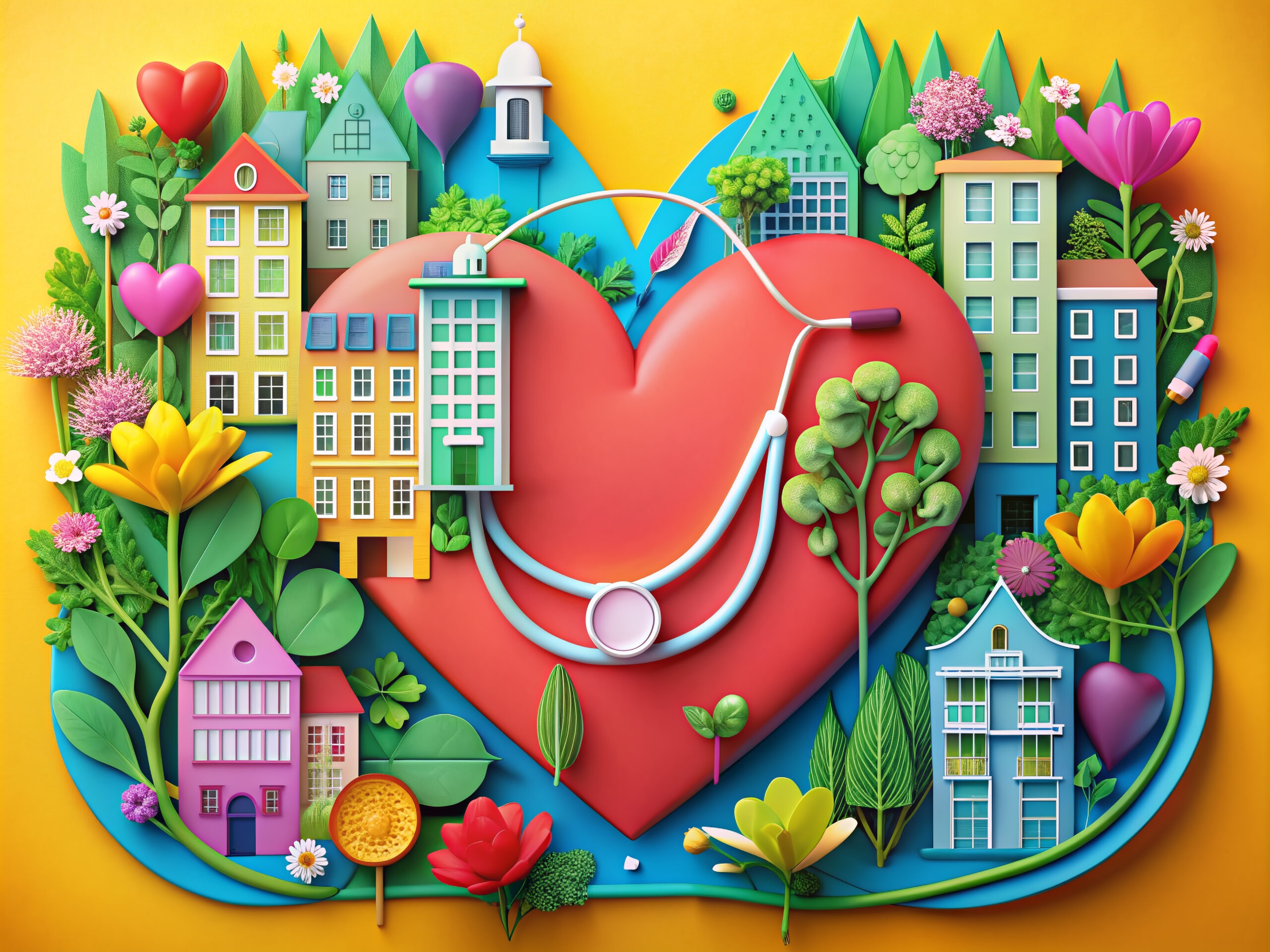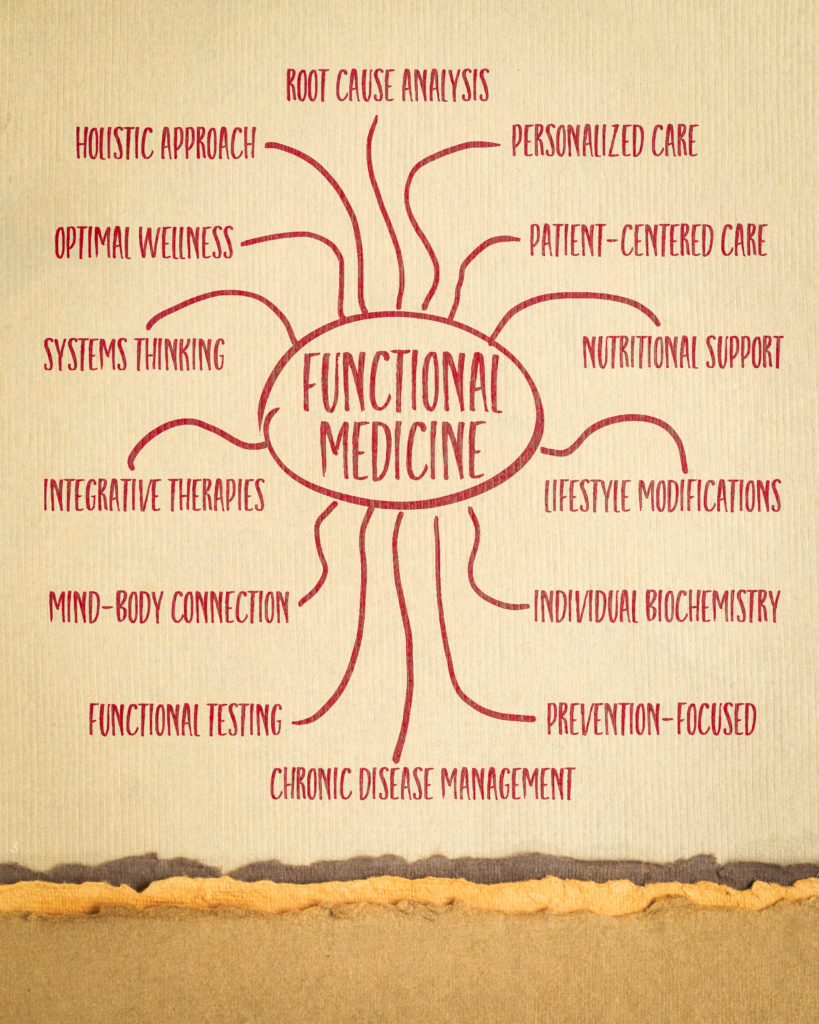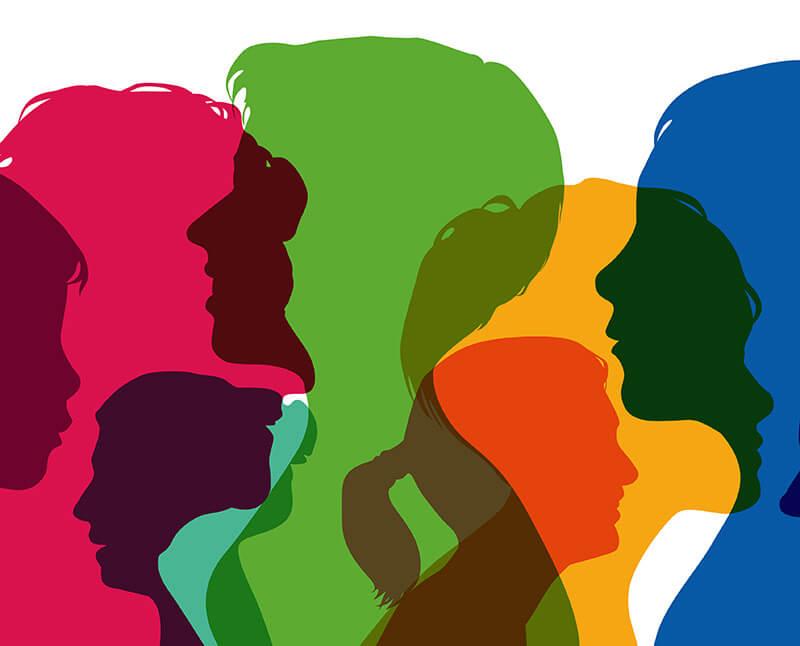

Why Community Health Matters!
Advancing Community Health Together
Our mission aligns with these principles, focusing on leveraging educational products and strategic insights to empower communities. By addressing Social Determinants of Health (SDOH) and applying frameworks like Community Health Needs Assessments, we work collaboratively to overcome barriers and promote wellness.
The Importance of Demographics in Community Wellness
Understanding the demographics and unique needs of our population is critical to improving health and wellness. Insights from the U.S. Census reveal trends such as population growth driven by immigration, which influence the types of care required as our communities age. This also shapes how wellness services are delivered and highlights the essential role of healthcare coverage in ensuring equitable access.
Community Health Needs Assessment (CHNA) – Actionable Data Outcomes
Communities can use the Community Health Needs Assessmsnt (CHNA) to better understand and prioritize action items to offer programming and resources for. To educate those who are new to this methodology, visit the reccomended steps hospitals use found on the IRS website.
Community served: CHNA datacollection and outcomes…
How a hospital defines its community is not a technical detail – it is the foundation of equitqable planning.
A hospital facility may take into account all the relevant facts and circumstances in defining the community it serves. This includes:
- The geographic area served by the hospital facility,
- Target populations served, such as children, women, or the aged, and
- Principal functions, such as a focus on a particular specialty area or targeted disease.
However, a hospital facility may not define its community in a way that excludes medically underserved, low-income, or minority populations who live in the geographic areas from which it draws its patients (unless such populations are not part of the hospital facility’s target population or affected by its principal functions) or otherwise should be included based on the method the hospital facility uses to define its community. Read more…
Healthcare Coverage and the Role of the Centers for Medicare & Medicaid Services (CMS)
Since its establishment in 1965, the Centers for Medicare & Medicaid Services (CMS) has been a cornerstone of the U.S. healthcare system. Originally introduced by President Lyndon B. Johnson through the Social Security Amendments, CMS has since expanded its mission to oversee compliance with health and safety standards across a wide range of healthcare providers. From hospitals and nursing homes to home health agencies and hospices, CMS ensures that care meets essential quality standards for Medicare and Medicaid beneficiaries.
Today, CMS provides health coverage to over 100 million Americans through Medicare, Medicaid, the Children’s Health Insurance Program (CHIP), and the Health Insurance Marketplace. This vast reach highlights its vital role in shaping access to healthcare services nationwide.
Key Financial Dynamics
In the U.S., healthcare coverage is influenced by the “payor mix,” which determines the proportion of payment sources, such as Medicare, Medicaid, private insurance, or self-pay. CMS’s role in assigning relative value units (RVUs) ensures that providers are compensated fairly based on the complexity and resource needs of care.


Life Coaching and Mentoring – Meaningful for ALL Ages!
We can have a variety of answers when we ask ourselves, or others “what do you want out of life?” The journey is unique to each individual or team. Due to the complexity within the journey of life we are faced with many paths, choices, and situations. The choice that takes a split second to make can have a consequence that lasts a lifetime. The affect can be much larger than just on the one individual who made that decision, or a “ripple effect.” Often decisions change how we view ourselves or others or rob us of confidence. There are ways to move past the barriers, especially those we create in our minds, to move forward and develop in ways we might have never imagined.
Life coaching is making the decision to make the time and invest in yourself. To live your best life is to constantly improve in small ways. It can be as simple as looking to those people you admire, if they are in you circle, invite them to coffee or lunch and share what you admire about them. Ask them how they developed that attribute or acquired a skill. Perhaps they would agree to mentor and guide you, ask them!
How many times have you heard someone say, “whatever” or “it doesn’t matter” within a thought they express? In working with teens, it is a common response I hear. As we emerge into face-to-face encounters, we have an opportunity to implement life skills that have been overlooked. Instead of “doing things the same as we always have” now is the opportunity to embrace small steps to a achieve better outcomes. Be it a community garden, volunteering with youth in academics, sports, or community groups we each have “one life” to use to make a difference.
When we understand it is the small things that truly make a difference and improve our overall health and that within our workplace and community. Combined with enthusiasm, our small actions can evoke big changes. Not only are you worth it, the benefits spill into our daily interactions and create positive relationships, improving lives of others!
A simple goal could include selection of an attribute, quality, or characteristic we want to develop. In business, we understand relationships are most important. Look in your community for associations and support to help you discover options and/or alternatives that help you to find your path to ‘feeling better” along with increased confidence and joy.
When you begin to achieve optimum wellness, you experience increased energy leading to more desirable outcomes and better state of mind. Changing the state of mind is amazing! This life changing transformational concept allows the soul to define greater meaning in the actions one takes. Let us help you find an area you want to improve. Learn More
Tell ME About YOU!
We Are “Multi-Generational
For the first time in history, there are five generations in the workplace. They are:
- Traditionalists – born 1925 to 1945
- Baby Boomers – born 1946 to 1964
- Generation X – born 1965 to 1980
- Millennials – born 1981 to 2000
- Generation Z – born 2001 to 2020
- Generation Alpha – born 2020 the first born entirely in the 21st century
Each generation bring a variety of skillsets and experience that can lead to innovative concepts encompassing solutions for organizations, living arrangements, and family structures. Realtors now face the challenge of finding dwellings that accommodate multiple generations. Families today don’t need to be biological, often shared values are important! From business perspectives to families understanding core values, work ethic, communication preferences, feedback preferences, as well as stereotypes provides useful insight moving forward.

